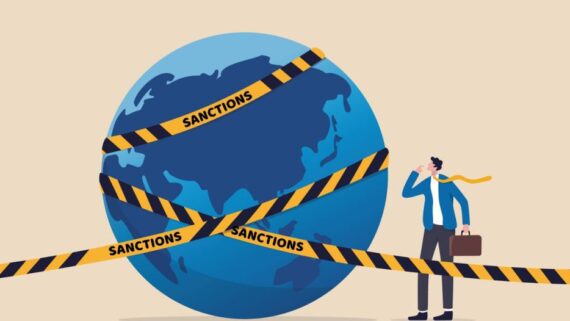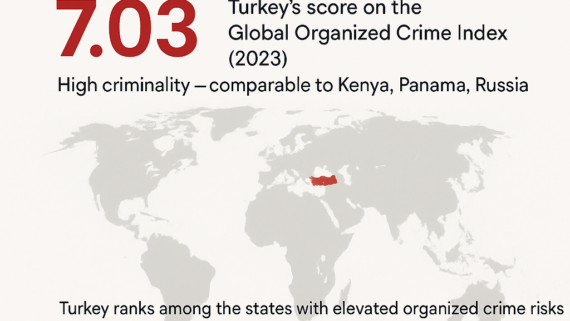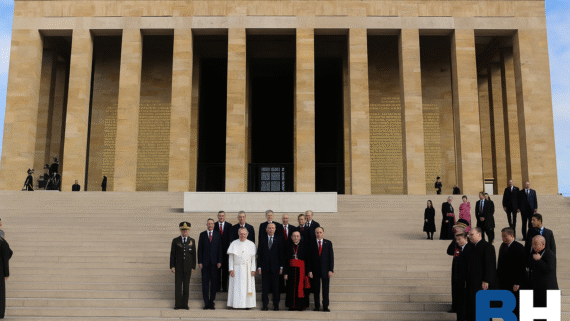Türkiye’s anti-money laundering (AML) framework is grounded in Article 282 of the Turkish Penal Code and Law No. 5549, with the Financial Crimes Investigation Board (MASAK) acting as the Financial Intelligence Unit and central coordinator. Criminal enforcement is led by public prosecutors, supported by police, gendarmerie, customs and coast guard, while sectoral supervision is conducted by the Banking Regulation and Supervision Agency (BRSA), the Capital Markets Board (CMB) and the insurance supervisor. The regime covers a broad spectrum of predicate offences and permits action against laundering the proceeds of foreign crimes wherever there is a Turkish nexus. Both natural and legal persons are liable; sanctions range from imprisonment and significant day-fines to confiscation (including, in defined circumstances, non-conviction-based) and administrative measures. The general limitation period is 15 years, subject to extensions in specified cases. Bıçak Law Firm advises domestic and international clients across the full AML lifecycle, including risk assessments and gap analyses; design and implementation of risk-based compliance programmes (CDD/EDD, PEP screening, transaction monitoring, record-keeping); drafting policies and procedures; training for boards and staff; STR preparation and liaison with MASAK; internal investigations and remediation; vendor/third-party due diligence; and representation in supervisory inspections, administrative proceedings and criminal enforcement.
Anti-Money Laundering Laws and Regulations Turkey
We are pleased to announce that Professor Dr. Vahit Bıçak, Chairman of Bicak Law Firm, has published a comprehensive chapter titled “Anti – Money Laundering Laws and Regulations Turkey/Türkiye 2024” in The International Comparative Legal Guides (ICLG), a premier resource by the Global Legal Group. Released on June 6, 2024, this chapter provides crucial insights into Türkiye’s anti – money laundering (AML) landscape, addressing criminal, regulatory, and administrative enforcement, as well as outlining critical compliance requirements for financial institutions and other designated entities. This authoritative chapter sheds light on the evolving AML framework in Türkiye, offering clarity on the obligations faced by businesses and financial institutions alike, as Türkiye continues to align with global standards in its fight against financial crime.
Money laundering is a global crime that threatens financial integrity, fuels organized crime, and undermines trust in markets. Türkiye, as a growing financial hub and trade partner, has developed a strong legal framework to combat money laundering and align with international standards. For businesses, financial institutions and professionals operating in Türkiye, understanding and complying with these rules is not optional – it is a legal and commercial necessity.
The Legal Foundations
The core of Türkiye’s anti-money laundering regime is found in Article 282 of the Turkish Criminal Code, which criminalizes laundering the proceeds of crime, and in Law No. 5549 on the Prevention of Laundering Proceeds of Crime. Together, they create both criminal sanctions and preventive obligations.
The Financial Crimes Investigation Board (MASAK) acts as Türkiye’s Financial Intelligence Unit (FIU) and plays a central role in enforcement, data analysis, supervision, and international cooperation.
Criminal enforcement is led by public prosecutors, supported by police, gendarmerie, customs, and coast guard. On the regulatory side, supervisory authorities include:
-
the Banking Regulation and Supervision Agency (BRSA) for the banking sector,
-
the Capital Markets Board (CMB) for securities and investment services, and
-
the Insurance Supervision Board (ISB) for the insurance industry.
Liability and Sanctions
Türkiye recognizes both individual and corporate liability for money laundering.
-
Individuals can face prison sentences of up to seven years, combined with significant fines.
-
Corporate entities can be punished with heavy monetary penalties, asset confiscation, suspension of activities, or even dissolution.
The statute of limitations is generally 15 years, but can extend up to 22 years and 6 months in certain cases.
Assets derived from criminal activity are subject to confiscation, and under certain conditions, Turkish law allows civil forfeiture even without a criminal conviction.
Compliance Duties for Institutions and Professionals
Preventive measures apply not only to banks and financial institutions but also to a wide group of designated non-financial businesses and professions (DNFBPs). These include lawyers, accountants, notaries, real estate agents, dealers in precious metals and stones, casinos and trust or company service providers.
Key compliance duties include:
-
Customer Due Diligence (CDD) and Enhanced Due Diligence (EDD) for high-risk clients, politically exposed persons (PEPs), and complex transactions.
-
Ongoing monitoring of business relationships and transactions.
-
Suspicious Transaction Reports (STRs) to MASAK without tipping-off the client.
-
Record-keeping obligations, typically for 5 to 10 years.
-
Internal controls and training to ensure compliance at all staff levels.
These obligations extend to cross-border transfers, large cash transactions, payment instruments, remittances, and virtual asset service providers (VASPs). Shell banks are explicitly prohibited. The treatment of cryptocurrencies and NFTs is developing but already falls under MASAK’s oversight.
International Dimension
Türkiye’s AML system has extraterritorial reach: laundering the proceeds of foreign crimes can still trigger liability if there is a Turkish connection. International cooperation is a priority, with MASAK sharing intelligence with foreign FIUs and regulators.
The Financial Action Task Force (FATF) reviewed Türkiye’s system in 2019 and in follow-up reports noted progress, while also encouraging improvements in beneficial ownership transparency, supervision, and cross-border coordination.
Legal Support
The complexity and seriousness of AML rules make legal support indispensable. Bıçak Law Firm advises domestic and international clients on every aspect of AML and counter-terrorist financing (CTF), including:
-
Conducting risk assessments and gap analyses.
-
Designing and implementing AML compliance programmes.
-
Preparing policies, procedures, and training for employees and executives.
-
Assisting with Suspicious Transaction Reports (STRs) and liaising with MASAK.
-
Representing clients in administrative inspections, supervisory actions and criminal proceedings.
-
Advising on cross-border risks, FATF compliance, and international cooperation.
We also support multinational corporations, NGOs, diplomatic missions, and local businesses in developing proactive compliance strategies that protect their operations and reputations.
Conclusion
Türkiye’s anti-money laundering regime is comprehensive, strict, and increasingly harmonized with global standards. The costs of non-compliance – criminal liability, administrative fines, loss of licenses, and reputational damage – are extremely high.
At Bıçak Law Firm, we combine deep knowledge of Turkish law with international experience to help our clients meet these challenges. Whether you are a financial institution, a multinational company, or a professional service provider, we are ready to guide you through Türkiye’s AML obligations, reduce your risk, and defend your interests before regulators and courts.
 English
English Türkçe
Türkçe Français
Français Deutsch
Deutsch










Comments
No comments yet.